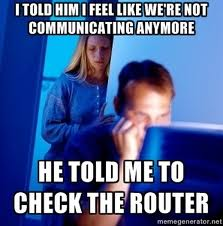
Frankly Speaking
Before evolving into a marketing executive, R F Timberlake & Company's president began his award-winning media career as a broadcast and print journalist helping the news industry to gravitate towards more in-depth and investigative reporting. Frank Timberlake taught broadcast and advertising, managed numerous political campaigns and operated media outlets with Linda, his wife and business partner. He has never been shy about speaking his mind. Having limited Frank to the subject of marketing, we hope you will enjoy Frankly Speaking, a marcom blog.
Do You Read or Scan or Both? SCANNING VS READING
I refer to the old saying, "there's a time and place for everything." That sounds so out of date and seems ancient when tossed alongside techno communications like Twitter and facebook from social media and LinkedIn for networking. By design one scans those with a watchful eye to see what's happening in the lives of family, friends, news, business and so much more.
 We've become scanners adopting the techno posture of scanning with our brains, as our eyes are simply eye cams wired to the processors, perusing vast oceans of information the likes of which have never before existed.
We've become scanners adopting the techno posture of scanning with our brains, as our eyes are simply eye cams wired to the processors, perusing vast oceans of information the likes of which have never before existed.
For "connective" media, a pot into which I'll throw all the enets, I think scanning is fine and almost mandatory if one is to accomplish any real work of the day. Here's where I'm throwing up a stop sign though.
I said "connective" not "communicative," big difference. Email is just that, an electronic letter, not a post. We saw it start with some of our media people. Here's a real for instance: We sent an email with three specific instructions written in regular letter form with multiple paragraphs. The respondent sent a reply to us confirming that the two tasks had been completed. When we inquired about the third the answer was this, "I'm so sorry, I must have missed that as I scanned your email."
 Therein lies what I see as a problem that is viral in growth; knowing when to read and knowing when to scan. This blog is a post so you could have opted out after the first sentence. The fact that you are right here, right now in time says you made a conscious choice to READ, even though this is a POSTING. If you send me an email (I'm not talking about forwarded jokes and photos) you had better believe that I will read it; and if you asked or I think I need to respond, you can bet I will. That's communication.
Therein lies what I see as a problem that is viral in growth; knowing when to read and knowing when to scan. This blog is a post so you could have opted out after the first sentence. The fact that you are right here, right now in time says you made a conscious choice to READ, even though this is a POSTING. If you send me an email (I'm not talking about forwarded jokes and photos) you had better believe that I will read it; and if you asked or I think I need to respond, you can bet I will. That's communication.
Where I want to see us go as both a connected and a communicative business world and as a society is to a level that works through knowing the difference between being connected and really communicating with one another. "I saw she died on facebook and LIKED it" doesn't communicate any real thought or emotion and is really pretty lame. We need to develop new communications policies for ourselves and for our companies that address when and how to stay connected and we need to update our policies for communicating.
At the top of the list is READING. "To acknowledge the receipt of letters is always proper, to remove doubts of their miscarriage." ~George Washington. A letter now days is an email and it has surpassed in-person contact and probably for all time has superseded the letter.
Will I view all the posts on my many networks of connection today? Probably not; I will SCAN them. Will I read all my emails today? Yes! Imagine, you would just hate it if I sent you an email and stated in the third paragraph that, "Oh by the way, I have a business contract for you" and you did not READ the email in its entirety. At R F Timberlake & Company, we've noticed the SCAN/READ scenario with media and other partners so we are now numbering or bullet-pointing such communications. That helps, but Frankly Speaking, we all should know the difference between READING VS SCANNING and take measures to improve.
